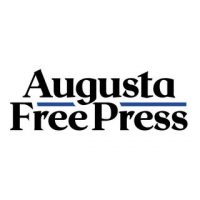
The caption in a local print newspaper announces, “Augusta considers tax relief.” It caught my eye. The Commissioner of Revenue, following a request from the Board of Supervisors, is proposing that the elderly with incomes under $55,000 and financial worth under $125,000 be eligible for tax relief.
I voted multiple times for similar proposals. If not for the elderly, then for veteran widows. Likewise, churches and non-profits benefiting from tax abatements are generally worthwhile.
Beyond tax relief, some people are beneficiaries of services, money and tangible support to aid their life’s struggle. As a Christian, and as one who wishes to be a compassionate person; I don’t disagree with the intent of these efforts. It is the model of the good Samaritan.
But this good can only come if the “Samaritan” has the necessary denarii.
The old saying about robbing Peter to pay Paul is essentially my concern. For every relief given to one person, another is asked to sacrifice a bit more.
So, it was my hope that Augusta was considering real tax relief, not just meager reductions for a sympathetic portion of our population. We, honestly, all need relief, not more burden.
For perspective, in Fiscal Year 2017, the county received $58 million from the combined property taxes: Real and Personal. The now proposed $91 million, for both, is a jump of $33 million, 56%, in seven years. Fifty percent rate hikes on meals and lodging, while employing a new tax on cigarettes, have contributed to the other local taxes increasing $10 million.
It needs to stop. Peter is broke, discouraged. Paul still has needs. We are all losing because our leaders are not up to tasks before them and are unwilling to listen to the people’s voices.
We must not give up but continue to speak our minds and offer solutions. Here’s mine.
The county needs to employ a 50:50 plan. Instead of lowering the R.E. tax to $.52/$100 while gaining $12 million, I propose taking it further down to $.50 gaining a still plentiful $10 million. Then cut the Personal Property Tax (car tax) from $2.60/$100 to the same $.50/$100, a $15 million savings to vehicle owners. An overall reduction of $5 million.
Requiring five times the tax rate on cars as for homes is not just unpopular, it is an inequitable hit on an essential rural need. Families, who live miles and miles from work, from schools, from commerce need more and better vehicles. The need for larger vehicles for carrying wood, livestock, feed, and equipment means a $1,820 tax on a $70,000 truck but a lesser $1,300 of tax on a $250,000 house.
Trucks and cars already contribute to enormous state and federal revenues. Sales tax, fuel tax, tolls, and registration fees are significant, but roads and bridges are costly to build and maintain. The county doesn’t build roads so why are cars such a target?
My 50:50 plan will have detractors, well, seven, for sure. Increasing real estate revenue by $10 million but cutting vehicle burden by $15 million may require smelling salts in Verona. Others whose work is paid for by the Augusta budget will be concerned. But they needn’t be, only the excessive growth in capital reserves is at risk.
The steps to this relief are very simple: set the two property tax rates at the same $.50/$100. Fund the capital account from year end fund balances, not the initial operations budget. Every operational budget dollar initially proposed or since added, fits once the capital funding waits until year’s end.
For understanding, I offer some background on capital funds, needs, and the year ending excesses:
The county has a spreadsheet, Capital Projects Accounts. It lists the balances, expenditures and revenues for 50 vaguely articulated constructions. These poorly defined money magnets had a $43 million balance on July 1, 2021. Two years later it was $75 million. (Sufficient to pay cash for the courthouse)
Augusta County cannot accrue that much money in just two years if the budgets are as tight as the Supervisors’ flowing crocodile tears try to convince us annually.
In the proposed budget the supervisors set aside $4.1 million for annual courthouse debt service. This matches the amount the Board’s vendor, Davenport Public Finance, had calculated if borrowing $72 million for 30 years.
But the reality is different from the offered worst-case scenario. Instead of borrowing $72 million they are opting for $40 million. If for the same 30 years; the annual cost drops to $2.3 million.
The county has already spent $5 million towards the $72 million, leaving $27 million yet to be funded. Given an existing $70-$80 million reserve fund, and annual budget surpluses of around $25 million, no further borrowing should be required.
Record budget surpluses seem to be a goal of our elected. Consider how the amounts of unneeded revenue have grown since my 2017 departure:
- FY17 $15,990,168
- FY18 $16,301,563
- FY19 $21,900,512
- FY20 $24,542,511
- FY21 $24,781,606
- FY22 $23,692,632
- FY23 $25,665,675
This year’s (FY2024) surplus will be a new record as it will likely surpass $30 million. The Supervisors chose not to consider the impact of the reassessment on this year’s budget. The new assessments, and tax rate, will add an unplanned $6 million in June. (6 + 25 = 31)
These surpluses are not the result of weak efforts by a poorly trained staff. Nope. The annual overestimation of costs, and the underestimation of revenues, are likely intentional. They have value to the Board.
Every two dollars not projected, means one dollar less for the School Board, and two dollars more in the pork barrel.
Decades ago, the Supervisors and School Board agreed to evenly split all local tax growth. From 2017 to 2023 those revenues increased by $31 million. Our kids and teachers were allotted $7 million while the Supervisors gained $24 million. (Teachers: take note)
Budget page 58 has a chart indicating how dramatically the County’s Fund Balance has risen in four years. A $60 million stash of cash in 2020 has ballooned to $120 million in 2023. But even this sharing of numbers is tainted.
The staff has noted three designations where only two exist: Restricted and Available. The chart shows less than $40 million as truly restricted. Meaning $80 million is available, needing only a supervisor vote, to spend as the mood strikes them.
On pages 425 and 426 the Capital Improvement Plan reveals 5 years of future allocations without bothering to note what presently exists. It might matter when knowing a Tourist Information Center line item, has $1,271,000 assigned to it rather than just listing a $10,000 contribution.
This project has been dead for at least 10 years.
The Supervisor’s Magisterial “Infrastructure” account proposes increasing the annual amounts from $350,000 annually to $1,400,000. But not seen is an existing $2,500,000 balance, seven years of past years contribution.
The overtaxing, to overfund the budget and supervisor slush funds, needs to stop. Cutting the car tax is a good place to start.
We the people need to be heard. If you want better government, speak up, with me, on April 17th or be ready to pay up as the taxman keeps coming.
You are welcome to email me at [email protected] or call me at 54-280-7194 with comments, questions, or just to vent.
Tracy Pyles is a former chairman of the Augusta County Board of Supervisors.









